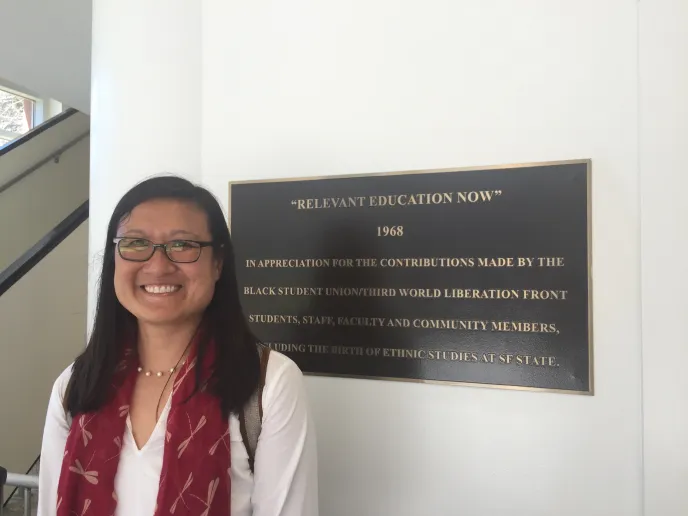Coping with COVID-19 and Creating Community

Image courtesy of Jennifer Ho
This is not how I expected to end my first year as director of the Center for Humanities & the Arts (CHA) at CU Boulder. Then again, no one could have expected or predicted the state of our world during this global pandemic. Among the projects we were in the middle of was a three-year strategic plan—we got as far as coming up with a mission statement: The Center for Humanities & the Arts fosters community, supports collaborations, and inspires creativity and research while promoting equity, inclusion, and academic excellence. This statement proved important as we pivoted from in-person gatherings to on-line programming because it reminded me that what we do as a promoter of arts and humanities exists beyond the brick and mortar walls of our center or CU Boulder. The CHA could still enact its mission statement through strategic collaborations and by opening up our idea of who is part of our community.
We immediately created a new tab on our website, Coping with COVID-19, and we brainstormed ideas that could bring people together remotely. Some of our efforts weren’t as successful—the excel spreadsheets we created for faculty to list the courses they were teaching on-line and thus to see if others could share resources with them never got off the ground. With others it was hard to gauge the level of engagement—such as our Monday Movie Nights. We invited a different guest viewer to watch a film along with me and anyone else who wanted to participate starting at 7pm MT and then we used the Facebook page of our center to “talk” about the film. Some films, like The Farewell had about a dozen people chiming in. Others, like Bombshell, seemed to be just me and the guest, though what I learned later was that oftentimes people were watching and reading the Facebook comments without adding their own observations—sharing later with me that they found the commentary entertaining and just enjoyed the experience of watching a movie together, even while apart.
The collaboration aspect of our mission statement proved to be truly exciting—geographic limitations weren’t a factor if we were all living our lives through Zoom. Through colleagues I had met through the Consortium for Humanities Centers and Institutes, we had two collaborative events: a virtual book group where we partnered with the Center for the Humanities at the University of Miami to read Ross Gay’s The Book of Delights, and our Shelter Project microgrants, an idea I got from the Willson Center at the University of Georgia. We held virtual book group meetings through Zoom and created an asynchronous space on Slack to discuss the book. And we plan to collaborate with the Willson Center to display the art projects being produced by our centers, since the requirements of the Shelter Projects were to create a project using artistic and humanistic methods that could be shared online.
I’m not sure what the next academic year will bring, but I do know that we want to continue to support our community at CU Boulder through community, through collaborations, and most of all through sharing the necessity of arts and humanities. I also know that it was important for the CHA to do things—like our Pandemic Posts—because people reached out to us and told us that even if they didn’t participate in the book group or movie night, it was reassuring to them to see the CHA take an active role in creating community. Which reinforces something I want to end with: I believe that the humanities and arts aren’t just ancillary to our well-being and health; they are necessary. There is so much uncertainty and suffering in the world because of the global pandemic. And the continuing reminders of anti-Black racism through the deaths of George Floyd, Tony McDade, Breonna Taylor, Ahmaud Arbery, and so many others, additionally impact and compound this uncertainty and suffering. We are planning to address issues of systemic racism and White supremacy in the fall, and I hope we can continue to collaborate with units on and off campus. We know that the work we do as an arts and humanities center is vital. We know that what people turn to in these moments are stories, music, film, videos, and art. And we know, most of all, that what we all need right now is connection—and thankfully as an arts and humanities center, we are prepared to fulfill our mission statement and provide community, connection, and collaboration at CU Boulder and beyond.
The daughter of a refugee father from China and an immigrant mother from Jamaica, Jennifer Ho is the director of the Center for Humanities & the Arts at the University of Colorado Boulder, where she also holds an appointment as Professor of Ethnic Studies. She is the president of the Association for Asian American Studies and the author of three scholarly monographs. In addition to her academic work, Ho is active in community engagement around issues of race and intersectionality, leading workshops on anti-racism and how to talk about race in our current political climate. You can follow her on Twitter @drjenho.
Learn how to contribute to the Humanities for All blog here.